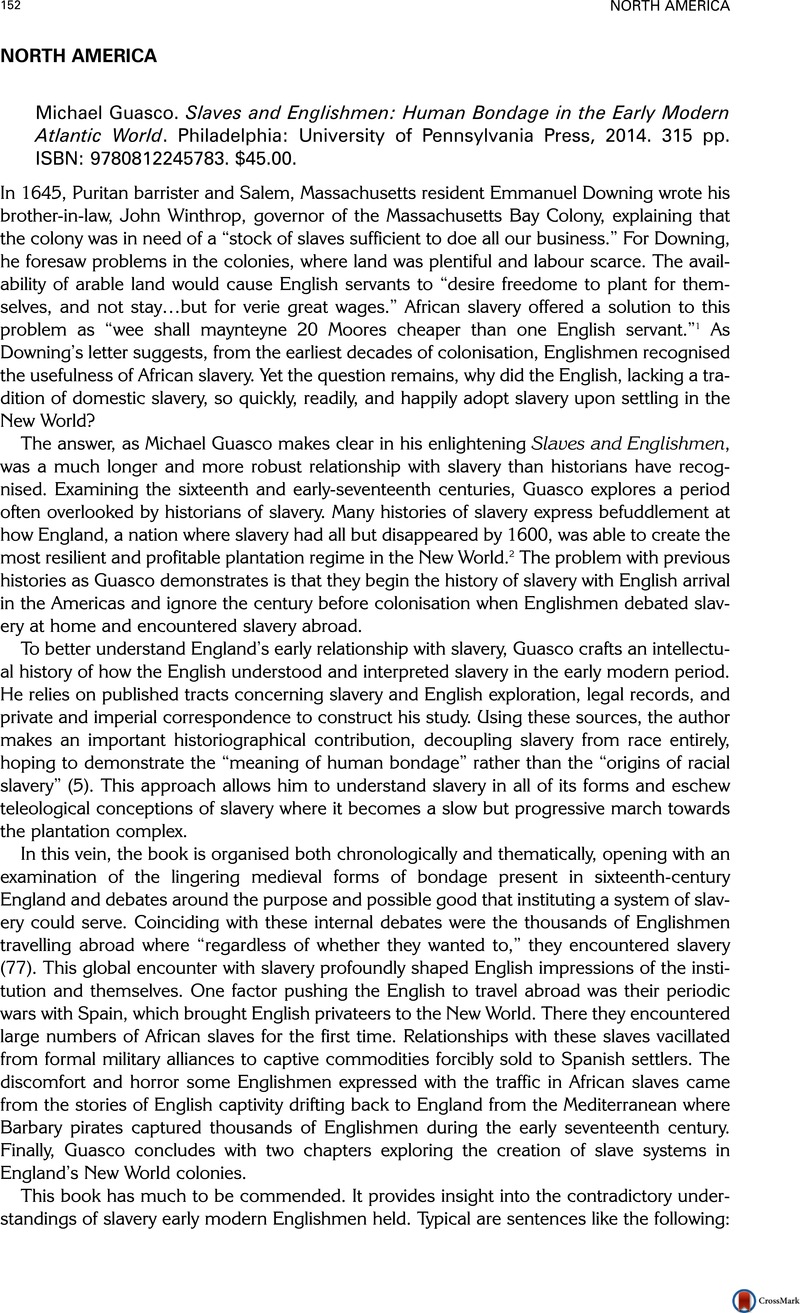No CrossRef data available.
Published online by Cambridge University Press: 09 January 2015

1 This letter is quoted in Innes, Stephen, Creating the Commonwealth: The Economic Culture of Puritan New England (New York: W.W. Norton, 1995), 105Google Scholar.
2 Some historians argue that slavery was an “unthinking decision” to meet New World labour needs. The most famous example of this in Jordan, Winthrop, White Over Black: American Attitudes Towards the Negro, 1550-1812 (Chapel Hill: University of North Carolina Press, 1968)Google Scholar. Others argue African slavery emerged out of an English tradition of bound labour, such as indentured servitude. See for example, Morgan, Edmund S., American Slavery, American Freedom (New York: W.W. Norton, 1976)Google Scholar.
3 Newman, Simon P., A New World of Labor: The Development of Plantation Slavery in the British Atlantic (Philadelphia: University of Pennsylvania Press, 2013), 251Google Scholar; Warren, Wendy Anne, New England Bound: Slavery and Colonization at the Edge of an Empire (New York: Liveright, Forthcoming)Google Scholar.